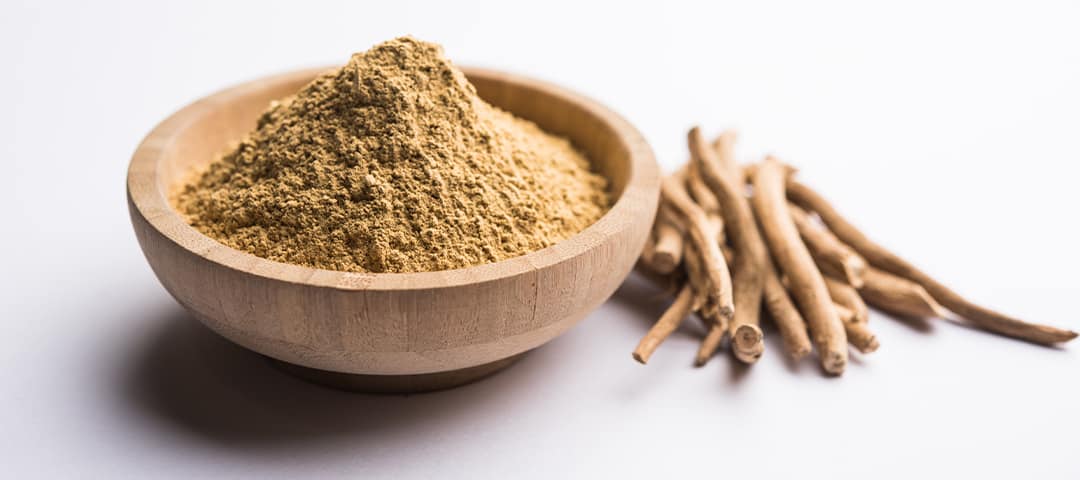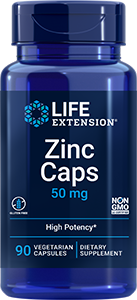
Newsletter
Newsletter
Trial finds ashwagandha provides relief for symptoms of menopause

Intake of the herb ashwagandha helped relieve the symptoms of menopause in a trial reported in the December 2021 issue of the Journal of Obstetrics and Gynecology Research.1
Ashwagandha is a plant that has been used for thousands of years in traditional Indian regimens. Today, it's commonly used for stress support, sexual dysfunction, sleep enhancement, cognitive support and more.
"The present study is the first double-blind, randomized, placebo-controlled clinical trial to evaluate the efficacy of an ashwagandha root extract on climacteric symptoms in perimenopausal women," authors Sriram Gopal of D Y Patil University School of Medicine and colleagues announced.
Ninety-one women completed the eight-week trial, in which 46 participants were given 300 mg of ashwagandha root extract twice per day, while the remainder received a twice-daily placebo. Participants rated the severity of their hot flashes in a daily symptom diary and scored other menopause symptoms using menopause symptom rating questionnaires.
The ashwagandha group reported significant improvements in many of their symptoms, including hot flashes, by four weeks. At the end of the trial, women who received ashwagandha had a reduction in overall menopause rating scale scores that was more than double that of the placebo group—with significant reductions in psychological, somatic-vegetative (hot flashes, heart discomfort, sleeping problems and/or joint or muscular discomfort) and genitourinary symptoms (such as vaginal dryness, sexual discomfort and/or bladder issues) as well.
"These findings suggest that ashwagandha root extract can be a safe and effective option to relieve mild to moderate climacteric symptoms during perimenopause in women," the authors concluded.
Products
Apply What You've Learned: Menopause
- Although some women breeze through the menopausal transition, others suffer symptoms like hot flashes, night sweats, vaginal dryness, fatigue, headache, irritability, "brain fog," insomnia, anxiety, depression, low libido and joint discomfort. Bioidentical hormone replacement therapy (BHRT), which uses forms of estrogen and progesterone that are identical to those produced in the body, can relieve many of these symptoms.
- In addition to BHRT, women may benefit from plant-based alternatives that provide similar physiological effects. This includes isoflavones from soy, hops and other plants and lignans from flaxseeds and sesame seeds.2
- An extract of Siberian rhubarb root also is clinically studied to relieve many common menopause symptoms and improve quality of life in perimenopausal women.3-5 It significantly reduced the number and severity of hot flashes by four weeks, and, after being taken for 96 weeks, on average the women had less than two mild hot flashes per day.3,6
- Menopause is associated with an increased risk of osteoporosis, Alzheimer’s disease and cardiovascular disease. As usual, a healthy diet and a physician-approved exercise regimen can help protect against these and other aging-associated conditions.
- Women going through menopause are up to 4x more likely to have a diagnosis of depression than when they were premenopausal.7,8 Anxiety is also more common. Both ashwagandha and Siberian rhubarb extracts have been found to help relieve menopause-related mood changes.1,4
References
- Gopal S et al. J Obstet Gynaecol Res. 2021 Dec;47(12):4414-4425.
- Chen MN et al. Climacteric. 2015 Apr;18(2):260-9.
- Heger M et al. Menopause. Sep-Oct 2006;13(5):744-59.
- Kaszkin-Bettag M, et al. Menopause. 2007 Mar-Apr;14(2):270-83.
- Kaszkin-Bettag M, et al. Altern Ther Health Med. 2009 Jan-Feb;15(1):24-34.
- Hasper I, et al. Menopause. 2009 Jan-Feb;16(1):117-31.
- Freeman EW, et al. Arch Gen Psychiatry. 2006 Apr;63(4):375-82.
- Birkhäuser M. Ther Umsch. 2021;78(8):427-434.
Featured Life Extension Magazine® Article
Curcumin for the Brain, by Deep Shukla, PhD
Curcumin, a compound found in the spice turmeric, is known to support cellular health and a healthy inflammatory response. Research continues to identify benefits associated with curcumin, including positive effects in the brain. In addition to its ability to support a healthy level of inflammation in the brain, curcumin encourages the formation of a type of brain cell known as neurons and helps maintain memory.
Unfortunately, curcumin can be difficult to absorb. However, combining curcumin with galactomannan from fenugreek increases its absorbability by as much as 45.5 times compared with regular curcumin. This improves curcumin's ability to penetrate the brain, as indicated by human research.
What's Hot
Health Concern
Soy relieves hot flashes
A study reported on July 12, 2021 in Menopause found that a plant-based diet with added soy relieved hot flashes in a majority of participants.

Female Hormone Restoration
In this protocol, learn how to approach bioidentical HRT judiciously. You will also see how readily available blood tests may help guide your therapy partnered with a qualified healthcare provider.
Related Life Extension Magazine® Articles

Get a Better Night's Sleep
A human study found that a new ashwagandha extract improved restorative sleep by 72%.

Menopause Symptom Relief Without Hormones
Menopausal symptoms were significantly reduced using a standardized rhubarb root extract.
Life Extension’s Premier Program
The loyalty program that pays for itself and keeps on giving!
Premier costs $49.95 a year, but the program pays for itself. You'll receive a $50 instant credit as soon as you enroll.
Learn MoreLife Extension Magazine® Issue Now Online
In a clinical trial, scientists identified two plant extracts that increased hair growth for 95% of men with male pattern baldness.




